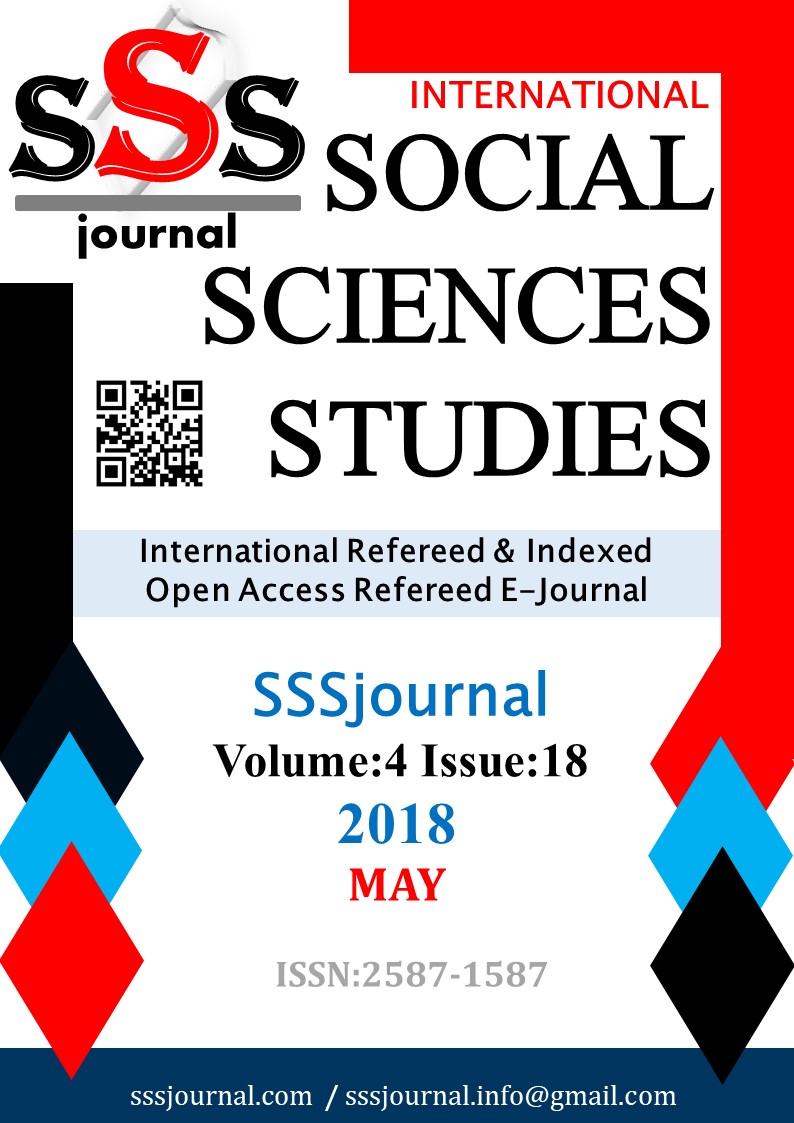Author :
Abstract
Varlığını uzun yıllar boyunca sürdüren ve temelleri oldukça derinlerde aranması gereken Avrupa Birliği, dünyadaki en önemli bütünleşme projesidir. Birliği diğer tüm projelerden ayıran şahsına münhasır konumu, bahsi geçen bütünleşme projesini bilimsel araştırmalara en çok konu olan başlıklardan bir tanesi haline getirmiştir. Avrupa Birliği, sergilediği çeşitli eylemler ve gerçekleştirdiği söylemlerle dünya siyasetinde etkin bir güçtür ve konuya ilişkin en fazla tartışılan kalemlerden bir tanesini Birliğin nasıl bir güç olduğu hususu oluşturmaktadır. Bu çalışma, sivil, askeri ya da normatif bir güç olarak görülen ve konuyla ilgili tartışmalara sık sık konu olan Avrupa Birliği’ni normatif bir güç olarak inceleyecektir. Çalışmada Ian Manners’ın 1990’lı yıllarda ortaya atmış olduğu görüş ışığında, Normatif güç kavramı, Avrupa Birliği’nin normatif temelleri ve bu normatif güç olma yahut sahip olduğu bu gücü devam ettirme amacıyla kullandığı ve kullanmakta olduğu araçlara yer verilmiştir. Buna ek olarak çalışmada, normatif bir güç olarak anılan Avrupa Birliği’nin sahip olduğu bu sıfatın Birliğin bugünkü durum ve eylemlerine ne oranda uyum sağladığı ve Birliğin bir normatif güç olarak görülüp görülemeyeceği de incelenecektir.
Keywords
Abstract
The European Union, whose existence has lasted for many years and whose foundations must be searched for deeply, is the most important integration project in the world. The unique position of the European Union, which distinguishes itself from all other projects, has made the integration project one of the most titles of scientific research. The European Union is an active force in world politics with various actions and rhetoric that it exhibits, and it is one of the most controversial items on the subject as to how the European Union is a force. This study will examine the European Union, which is seen as a civil, military, or normative force, a frequent subject of debate on the issue, as a normative force. In the light of the opinion that Ian Manners had been put forward in the 1990s in the light of the work, the concept of normative power, the normative foundations of the European Union, and the tools that it uses and uses to maintain this power, whether it is normative power or possess it. In addition, it will be examined whether this title of the European Union, referred to as a normative power, adapts itself to the present situation and actions of the Union and whether the Union can be regarded as a normative force.
Keywords
- Akça Ataç, C. (2012). “AB’nin Normatif Kapasite Sorunu, Akdeniz İçin Birlik ve Türkiye”. Ankara Avrupa
- Akça Ataç, C. (2012). “AB’nin Normatif Kapasite Sorunu, Akdeniz İçin Birlik ve Türkiye”. Ankara Avrupa Çalışmaları Dergisi, Cilt: 11(1), 1-24. http://ataum.ankara.edu.tr/11-1.pdf (e.t. 15.04.2015).
- Aktan, C. C. (2000). “Türkiye Avrupa Birliği’nin Neresinde?”. http://www.canaktan.org/ekonomi/avrupa- birligi/uyelik-kosul.htm (e.t. 25.10.2016).
- Bull, H. (1982). “Civilian Power Europe: A Contradiction in Terms?”. Journal of Common Market Studies, 21(2), 149-164.
- Dinç, C. (2011). “Sivil Güç – Realist Oyuncu İkileminde Avrupa Birliği’nin Küresel Konumu ÜzerineTartışmalar”. Uluslararası Hukuk ve Politika, Cilt: 7(28), 89-124. http://usak.org.tr/images_upload/files/uhp%2028%203-4.pdf (e.t. 18.04.2015).
- Duchêne, F. (1973). Europe's Role in World Peace. In: Mayne, R. (ed.) Europe Tomorrow: 16 Europeans Look Ahead. London, U.K.: Fontana
- European Commission. (2011). “Understanding Enlargement”.http://www.ab.gov.tr/files/ardb/evt/1_avrupa_birligi/1_6_raporlar/1_3_diger/enlargement/European_Commi ssion_Understanding_Enlargement_The_European_Unions_enlargement_policy.pdf (e.t. 19.04.2014).
- European Commission. “Accession Criteria”. http://ec.europa.eu/enlargement/policy/glossary/terms/accession-criteria_en.htm (e.t. 19.04.2015).
- Hyde-Price, A. (2008). “A ‘tragic actor’? A realist perspective on ‘ethical power Europ”. International Affairs, 84, 29-44.
- Kaçar, F. ve Öztürk, K. (2017). “Avrupa Birliği’nin Normatif Gücü: Kavramsal Bir İnceleme”. SüleymanDemirel Üniversitesi Sosyal Bilimler Enstitüsü Dergisi, Cilt: 3(28), 359-370. http://sbedergi.sdu.edu.tr/assets/uploads/sites/343/files/28-sayi-yazi19-12112017.pdf (e.t. 03.01.2018).
- Krohn, F. (2009). “What Kind of Power? The EU as an International Actor”. http://www.atlantic- community.org/app/webroot/files/articlepdf/Fabian%20Krohn.pdf (e.t. 16.04.2015).
- Manners, I. (2002). “Normative Power Europe: A Contradiction in Terms”. Journal of Common MarketStudies, vol. 40(2), 235-258. http://onlinelibrary.wiley.com/doi/10.1111/1468-5965.00353/pdf (e.t. 16.04.2015).
- Manners, I. (2001). “Normative Power Europe: The International Role of the EU”. http://aei.pitt.edu/7263/1/002188_1.PDF (e.t. 15.04.2015)
- Morgil, O. (2006). “Kopenhag Ekonomik Kriterleri ve Türkiye’nin Uyum Süreci”. Ankara AvrupaÇalışmaları Dergisi, Cilt 5(2), 91-102. http://dergiler.ankara.edu.tr/dergiler/16/1122/13215.pdf (e.t. 04.12.2017).
- Özgündüz, S. (2012). “Bir Normatif Güç Uygulaması Olarak Avrupa Komşuluk Politikası: Güney Kafkasya Ülkeleri Örneği”, Yüksek Lisans Tezi, İstanbul Üniversitesi/Sosyal Bilimler Enstitüsü, İstanbul.
- Samur, H. (2009). “Avrupa Komşuluk Politikası ve Amaçları”. Elektronik Sosyal Bilimler Dergisi, Cilt:8(27), 18-35. http://dergipark.ulakbim.gov.tr/esosder/article/view/5000068205/5000063269 (e.t.Sawe, B. E. (2017). “The Copenhagen Criteria: What Makes a Country Eligible To Join The EuropeanUnion”. https://www.worldatlas.com/articles/the-copenhagen-criteria-what-makes-a-country-eligible-to-join- the-european-union.html (e.t. 25.11.2017).
- Tocci, N. (2008). “Who is a Normative Foreign Policy Actor?”. http://aei.pitt.edu/32609/1/48._Who_is_a_Normative_Foreign_Policy_Actor.pdf (e.t. 17.04.2015).
- Ülger, İ. K. (2008). Avrupa Birliği Rehberi. Umuttepe Yayınları, Kocaeli.
- Yılmaz, S. ve Yücel Uğurlu. (2013). “Bölgesel Güç Olarak Avrupa birliği ve Dış Politika”. Ankara AvrupaÇalışmaları Dergisi, Cilt: 12(2), 81-104. http://dergiler.ankara.edu.tr/dergiler/16/1887/19804.pdf (e.t.





